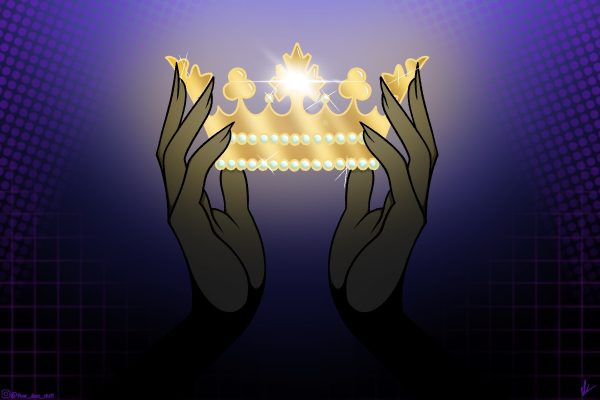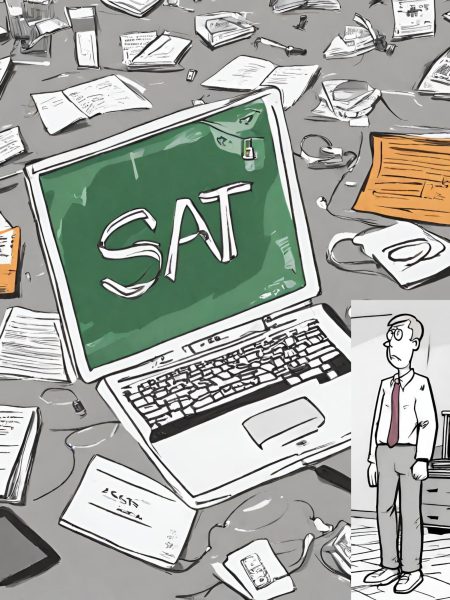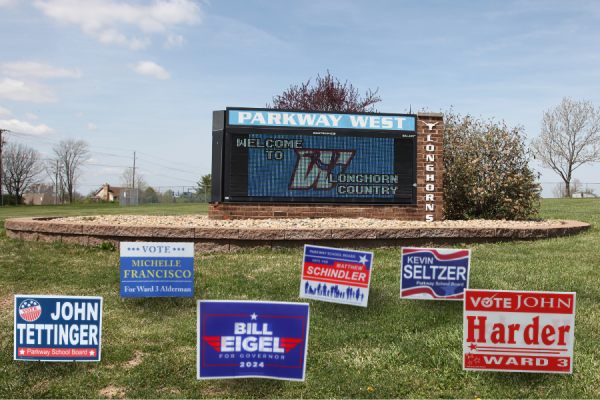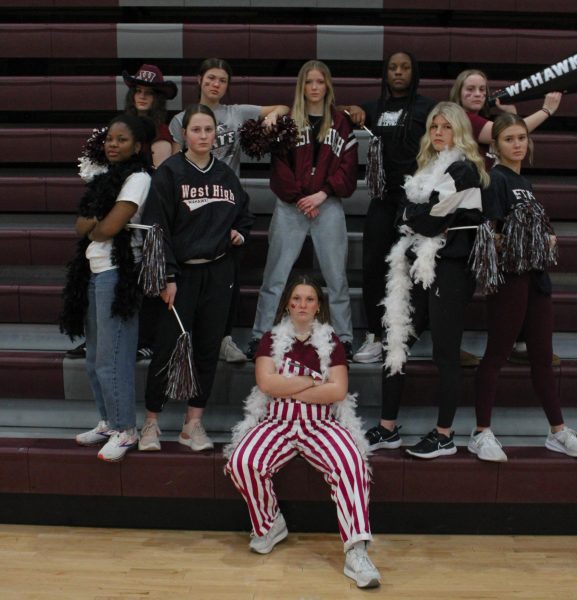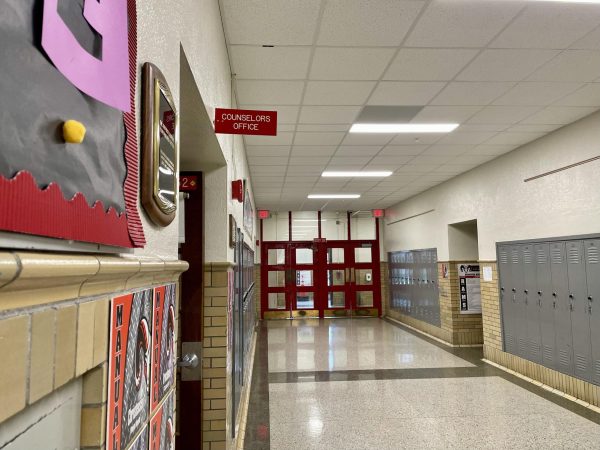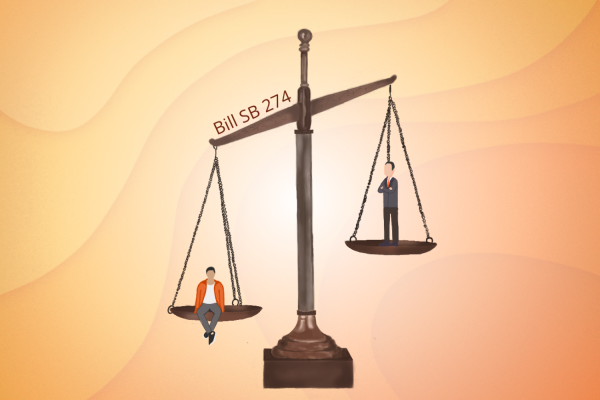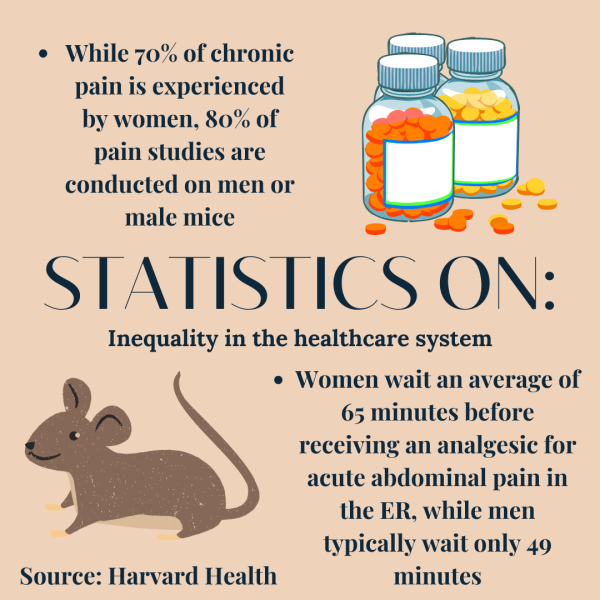Conservative Views Are Not the Same as Being Gay: Not Now and Not in the 50’s
December 10, 2020
Recently in an article titled “Liberal Privilege: An Indirect Attack on the First Amendment,” an anonymous commenter wrote “Thank you so much for this article! Conservative students aren’t the only people on campus who feel it’s best to keep their views quiet. A Conservative teacher today is like a gay teacher in the 50s, definitely best to “stay in the closet”. Keep speaking out for all sides to be respected! Would never want to be known as the teacher with a different political view. Signed, Will stay in the closet.” This is SJHHS English teacher Danielle Serio’s response.
It’s not always simple being a teacher with opinions. We have to spend a lot of time nodding when students present us with ideas that are diametrically opposed to our own, offering up not structured and biting counter arguments but “What makes you say that?” and “Interesting! Tell me more!” because, ultimately, it is not our job to tell students what to think. Our goal is to help students add complexity and nuance to their own thought processes. Inserting ourselves into those moments — while tempting — is counter to that goal.
That is not true, however, when it comes to our interactions with our colleagues. They are college-educated and fully-formed adults who should know the difference between being challenged and being oppressed.
This is why I was frustrated reading recently that “a conservative teacher today is like a gay teacher in the 50s, definitely best to ‘stay in the closet.’” Now of course every person has a right to keep their opinions to themselves to avoid conflict in the staff room (my experience has been that we’re all there to hunt for nothing more complicated than leftover bagels), but something felt pretty radically “off” in this less than hot take.
Maybe it’s because I’m a gay teacher.
Granted, I’m not a gay teacher in the 1950s, but I am a gay teacher now. I was a gay student before that. When I was a gay student, I lied to people I loved about who I was, much like this teacher believes they have to about being a conservative, but the parallels end there. I also had “dyke” carved into my notebook with a penknife. I was assaulted on a school bus. I couldn’t tell my parents what was happening to me. Every day I wondered if I was broken.
Then I became a confident, self-assured gay teacher, but the world didn’t change as quickly as I did. I wonder if my colleague has ever had to stop holding hands with their partner in public because someone has been looking at them just a moment too long, and they’re worried they might become a victim of violence? I wonder if my colleague has ever had to read on the news that the Supreme Court might take away their right to get married? Or adopt children? Or be protected from discrimination at work?
But these are all current examples, and they’re largely personal. Let’s take their suggestion and look to the past. We don’t even have to go back that far. In 1978, when my father was 20 years old, Prop 6 — also called the Briggs Initiative — was put on the ballot in California. This initiative was following in the footsteps of props that had recently passed in states like Arkansas and Oklahoma. The goal? Remove gays and lesbians from the classroom completely. The argument was that we were dangerous pedophiles who were destroying the sanctity of the classroom. When it was introduced, it had 60% statewide approval.
We can go back further. Homosexuality has been criminalized in the United States, and punishable with jail time, for most of her history. The first state to decriminalize it did so in the 1950s, but it took more than 30 years to see the rest of the laws disappear. There still aren’t widespread protections for LGBTQ+ people in this country, with 27 states currently lacking specific employment and housing anti-discrimination laws. In 2014, the FBI reported that more than 20% of hate crimes committed in this country were based on perceived sexual orientation.
So forgive me for not seeing the parallel here. Being “in the closet” is not something we choose to shield ourselves from criticism. It’s not because we’re afraid of an awkward interaction at the staff mailboxes. It’s not because we think we might be laughed at. It’s because we know that not everyone is down with us existing in public, and they are sometimes violently prepared to remind us of that. And there’s a long history in this country — well beyond the 1950s — to back that up.
But I don’t want to end here, because though this is a response to a colleague, this is really a message for students. There’s a popular line that goes something like “homosexuality is not a choice” that is used to argue for our acceptance and assimilation. The point of the sentiment is to remind people that we didn’t choose to be who we are. And while that’s true, it’s always rubbed me the wrong way. Homosexuality may not be a choice, but if it was, I would choose it anyway.
But why? Why would I choose a life marked by fear and scarred by a history of oppression and violence?
Because there is so much that is beautiful about being gay. For every year of hate, we built a year of vibrant culture and connection to one another. We are marked not only by phobia, but by resilience and patience and love. I have a beautiful partner and a rich fabric of friends and chosen family, and I wouldn’t trade it for anything.
So no, being a conservative teacher is not like being a gay one, but it might be worthwhile to take a page from our book and use this perceived slight to grow up and march forward. If we stop being afraid to talk to each other, we might accomplish a lot more.
This story was originally published on The Express on December 6, 2020.



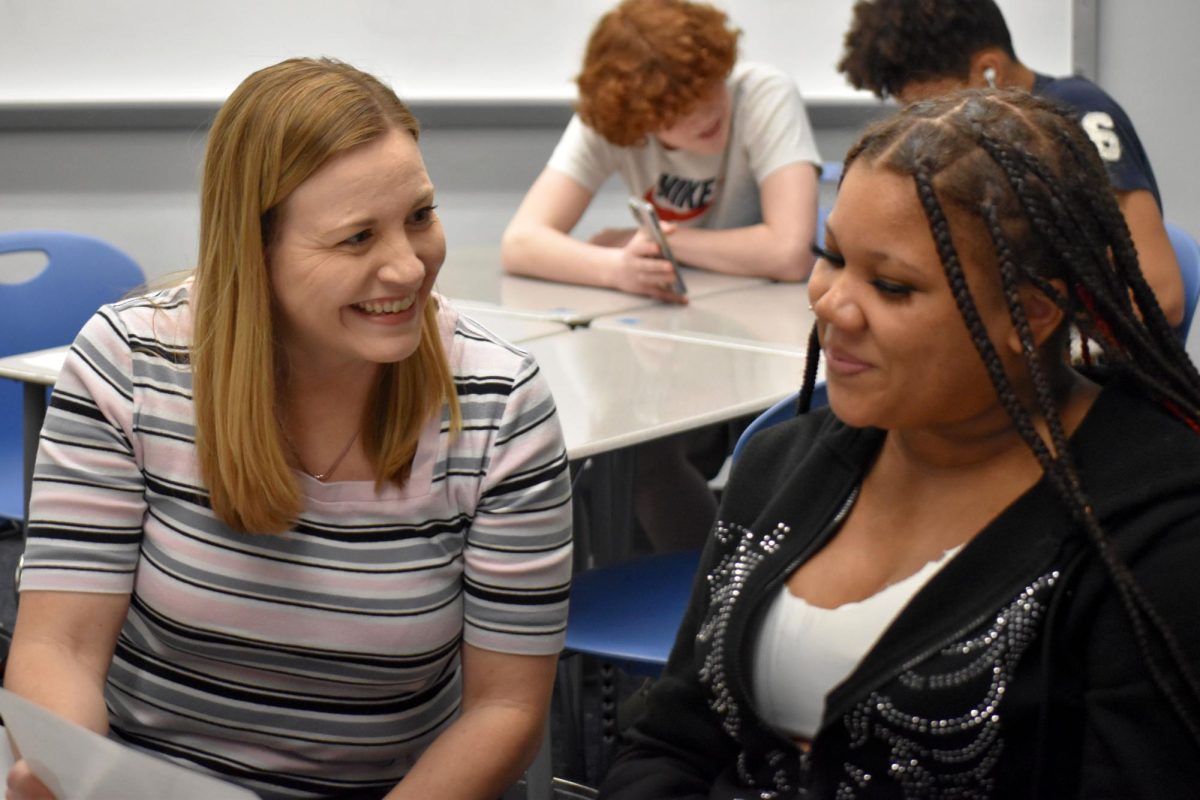
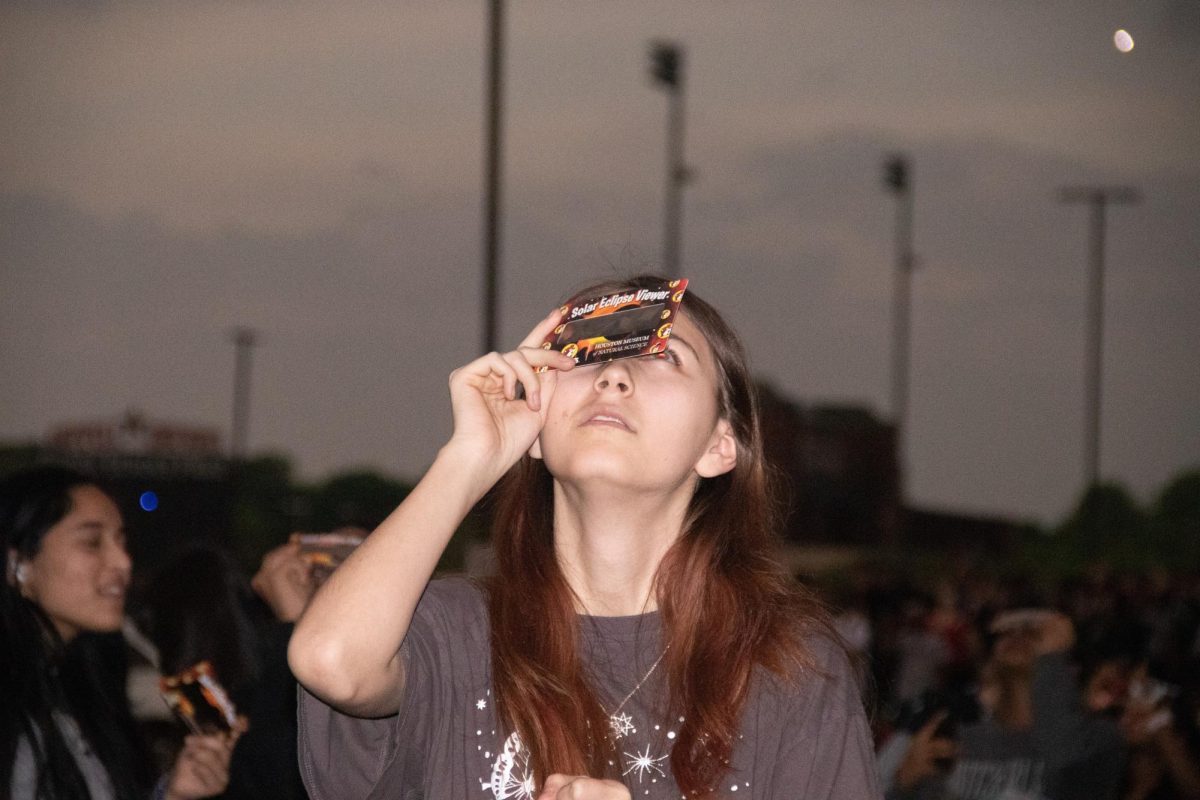










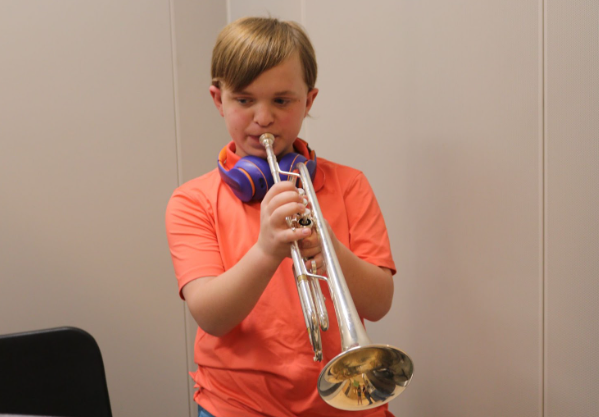
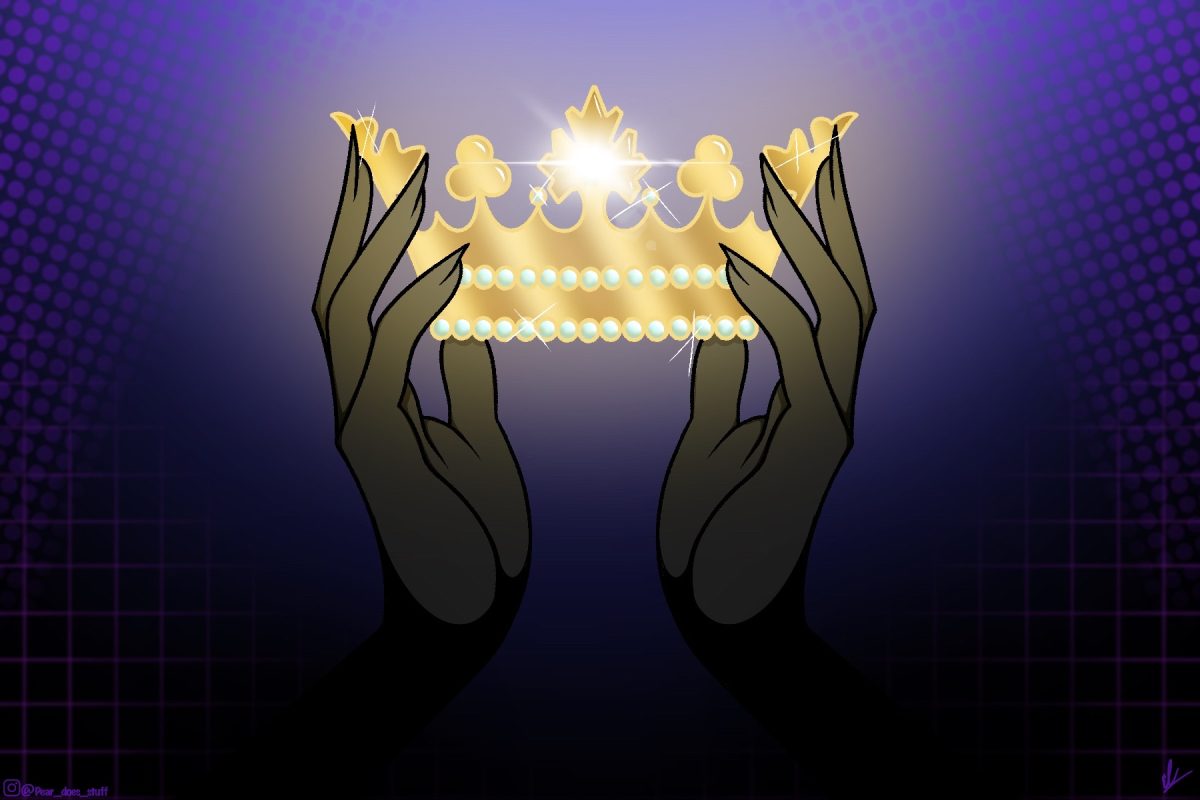



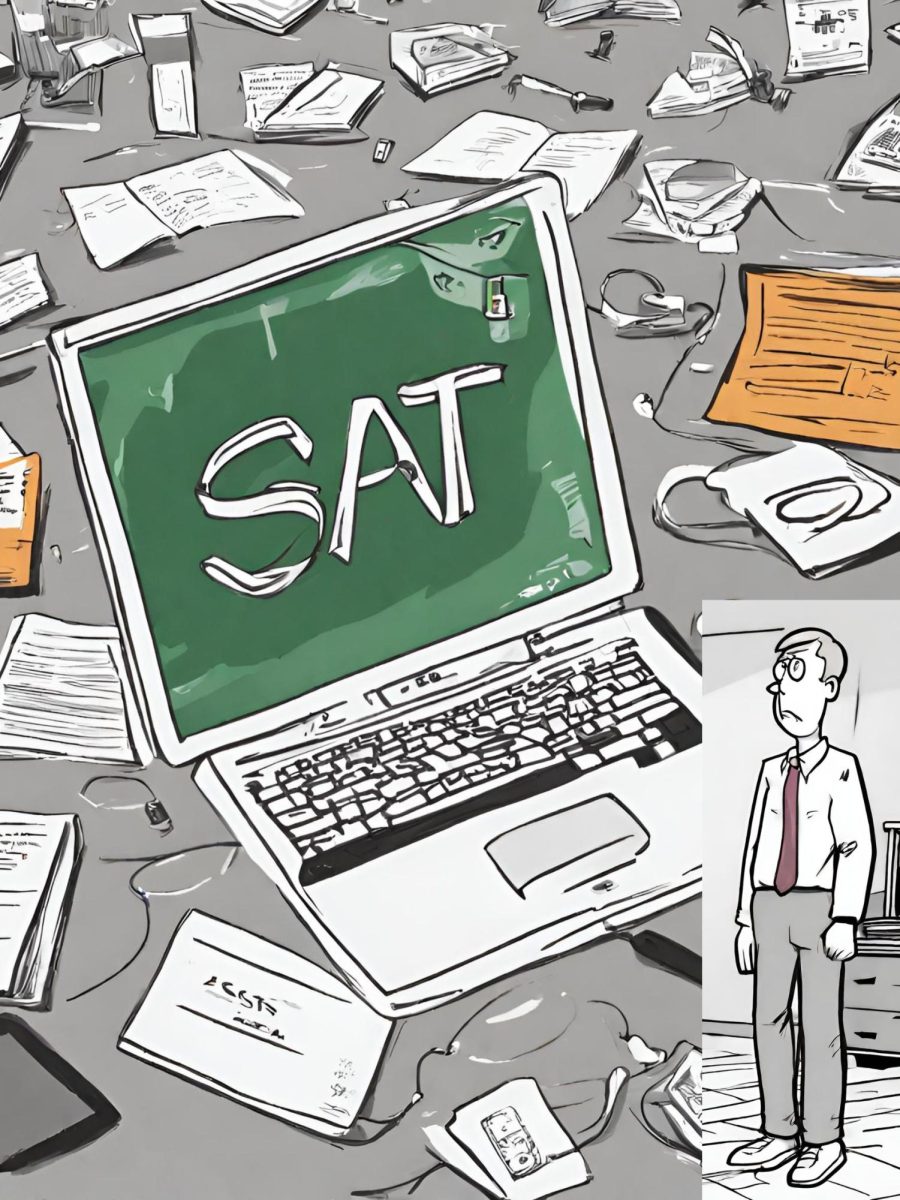






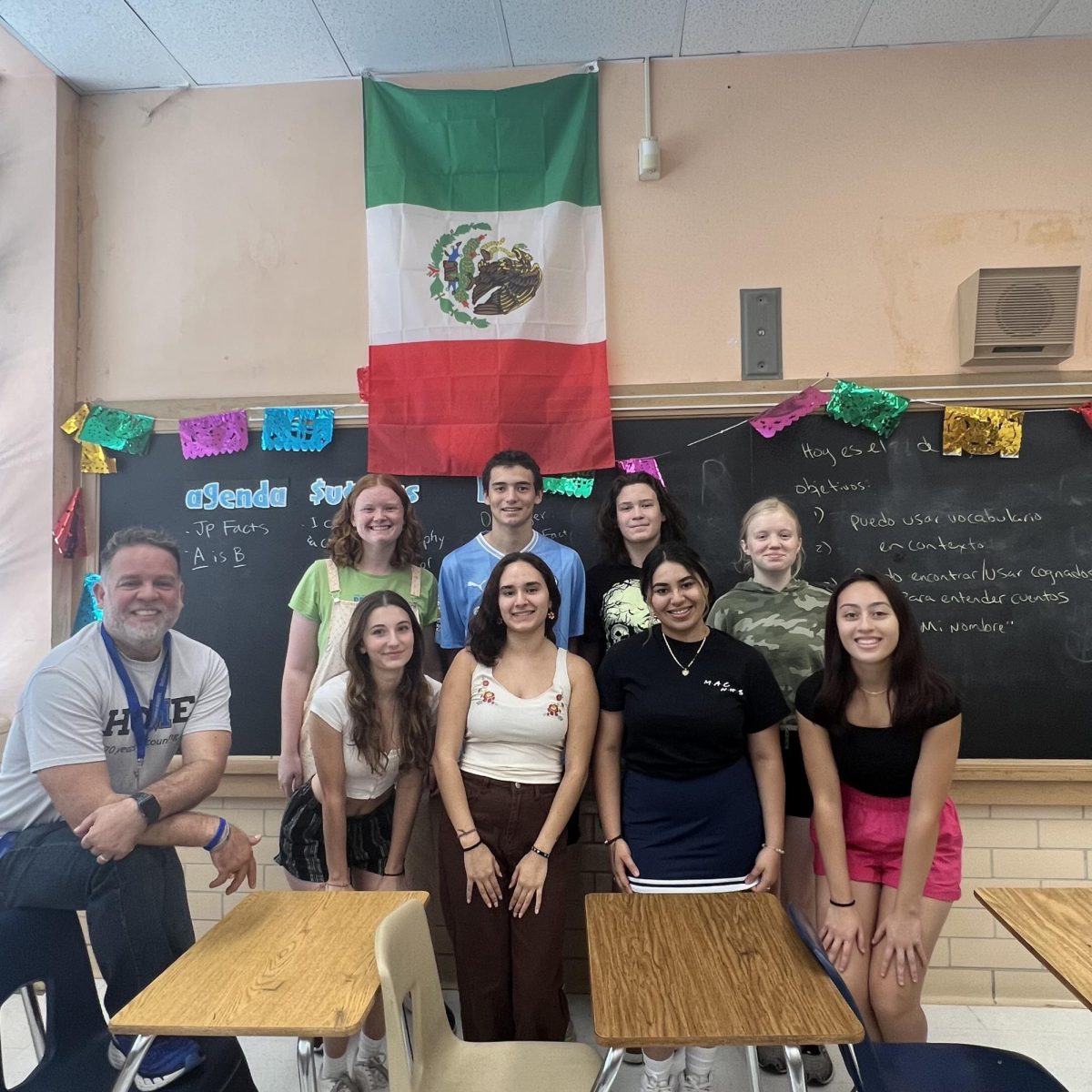

![IN THE SPOTLIGHT: Junior Zalie Mann performs “I Love to Cry at Weddings,” an ensemble piece from the fall musical Sweet Charity, to prospective students during the Fine Arts Showcase on Wednesday, Nov. 8. The showcase is a compilation of performances and demonstrations from each fine arts strand offered at McCallum. This show is put on so that prospective students can see if they are interested in joining an academy or major.
Sweet Charity originally ran the weekends of Sept. 28 and Oct. 8, but made a comeback for the Fine Arts Showcase.
“[Being at the front in the spotlight] is my favorite part of the whole dance, so I was super happy to be on stage performing and smiling at the audience,” Mann said.
Mann performed in both the musical theatre performance and dance excerpt “Ethereal,” a contemporary piece choreographed by the new dance director Terrance Carson, in the showcase. With also being a dance ambassador, Mann got to talk about what MAC dance is, her experience and answer any questions the aspiring arts majors and their parents may have.
Caption by Maya Tackett.](https://bestofsno.com/wp-content/uploads/2024/02/53321803427_47cd17fe70_o-1-1200x800.jpg)
![SPREADING THE JOY: Sophomore Chim Becker poses with sophomores Cozbi Sims and Lou Davidson while manning a table at the Hispanic Heritage treat day during lunch of Sept 28. Becker is a part of the students of color alliance, who put together the activity to raise money for their club.
“It [the stand] was really fun because McCallum has a lot of latino kids,” Becker said. “And I think it was nice that I could share the stuff that I usually just have at home with people who have never tried it before.”
Becker recognizes the importance of celebrating Hispanic heritage at Mac.
“I think its important to celebrate,” Becker said. “Because our culture is awesome and super cool, and everybody should be able to learn about other cultures of the world.”
Caption by JoJo Barnard.](https://bestofsno.com/wp-content/uploads/2024/01/53221601352_4127a81c41_o-1200x675.jpg)




